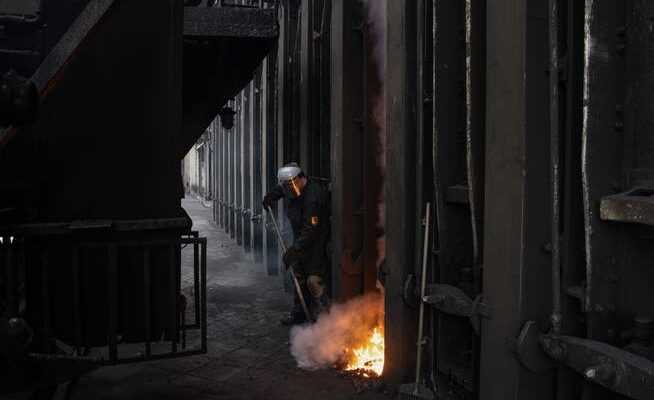In a new UN report on climate change, the path to a sustainable global economy has been mapped out. In the difficult geopolitical situation resulting from the Ukraine war, this not only creates opportunities. There are also risks.
Coal imports from Russia should soon be a thing of the past – in the picture a worker in a coke production plant in Moscow.
The UN climate report presented on Monday is a little across the landscape. When a dictator is in the process of raiding a neighboring country and blaring nuclear threats, the report’s focus on transforming the global economy toward low-carbon technologies doesn’t quite seem like the most important issue on the planet it’s been portrayed as for years.
But this inconsistency is not the fault of the authors. When they started their work three years ago, they could not have guessed what they would be confronted with when presenting their work in spring 2022: with a fundamentally changed geopolitical situation.
After all, Russia’s war against Ukraine and the intensification of the alliance between Russia and China are not only shifting defense policy guidelines. These processes are also shaking up the energy and raw materials market, which is so important for climate policy.
Two birds with one stone?
An accelerated move away from fossil energy sources is one of the most important climate policy measures formulated in the report. Many countries don’t give a damn right now, but are desperately looking for a substitute for the fossil fuels from Russia – fossil substitutes, mind you.
The hope of those who care about climate protection is that this development will be a flash in the pan. They announce, whether with conviction or like whistling in the woods, that the changed geopolitical situation offers a great long-term opportunity for the climate-friendly transformation of the global economy – and vice versa.
The main argument is that there is another reason to leave the fossil fuel age behind. Those who rely on low-carbon energy sources reduce their dependence on politically dubious regimes. In this way you kill two birds with one stone.
While this argument has much merit, it is incomplete.
Distressed ex-petrostates
As climate-vanguard countries increasingly embrace low-carbon technologies, they must be careful not to replace old problematic geopolitical dependencies with new ones that are just as delicate. Concerns are already growing that the supply of certain metals could falter. And many states with rich deposits of raw materials that are relevant for the energetic transformation are not exactly among the democratic model boys.
Another not unimportant question is in which political direction those states will develop that were previously able to benefit from the insatiable demand from the democratic West due to their deposits of fossil raw materials. “The map of the world will be peppered with distressed ex-petrostates,” The Economist recently pointed out. Further geopolitical risks have thus been mapped out.
Furthermore, the sudden demand for raw materials that are needed for the global climate transition can lead to unhealthy economic developments in those countries that supply these raw materials. The temptation will be great to stake everything on one card and take full advantage of the short-term boom. Later, when dependence on the sale of a single raw material has arisen, the hangover will be great.
The transition to a climate-neutral economy is not a panacea for the new geopolitical problems. There is at most a partial side benefit. Nobody should underestimate the highly ambivalent effects of such a large undertaking as the global transformation of energy supply, industry, transport, agriculture and forestry.
